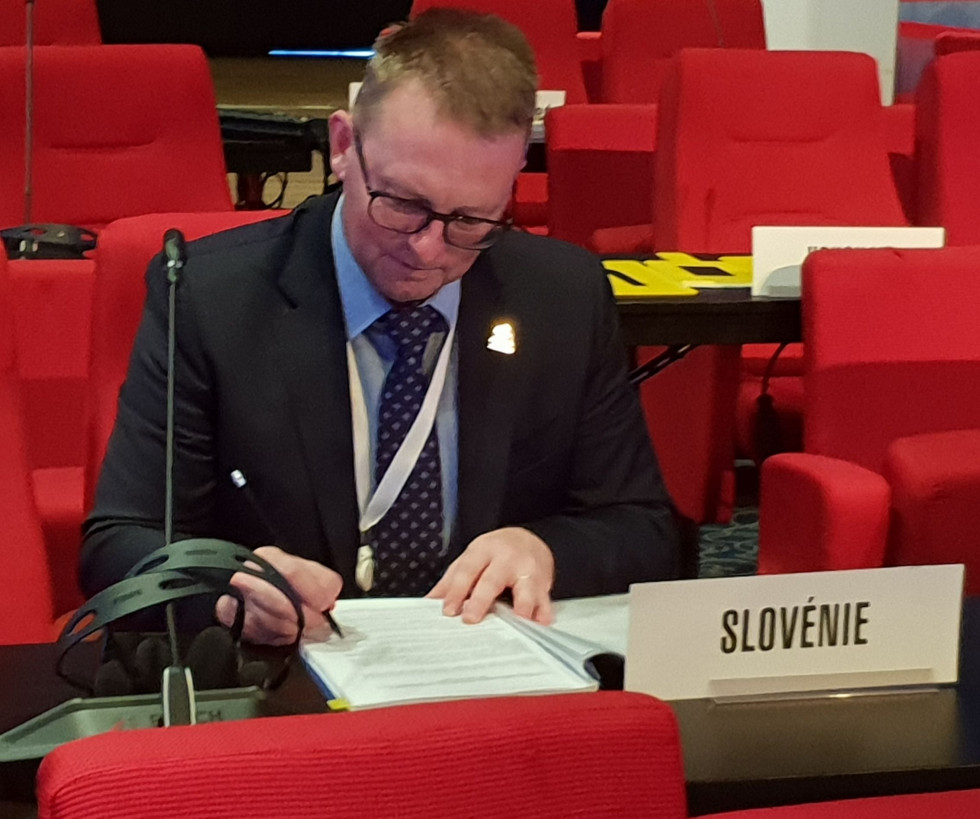ITU World Radiocommunication Conference adopts exception in favour of Slovenia

A delegation of the Republic of Slovenia headed by State Secretary at the Ministry of Public Administration Leon Behin is attending the conference | Author MJU
A delegation of the Republic of Slovenia headed by State Secretary at the Ministry of Public Administration Leon Behin is attending the conference, which will be held from 28 October to 22 November 2019. The purpose of the conference is to allow countries to participate in the digital economy by providing access to faster and more affordable connections. Some items on the WCR-19 agenda are of strategic importance for Slovenia and with regard to decisions in support of the European objectives, the Slovenian delegation pursues the following four goals: protecting our satellites, providing access to broad-band mobile services to all citizens with minimum costs as soon as possible, ensuring the safety of citizens, and promoting the development of new technologies.
One of the key outcomes of the Conference favourable to Slovenia is yesterday's adoption of an exception in relation to the extension of the time limit for the use of the frequency band 401–403 MHz for commercial and non-commercial satellites from 2027 to 2029, and of a special exception for the Slovenian NEMO-HD satellite, which will be launched in 2020. The Slovenian satellite should have been launched in the summer of 2019, but due to a launch vehicle failure the launch was postponed and will be carried out after the Conference. Due to exceptional circumstances, the WRC-19 approved the proposal of the Slovenian delegation and in the minutes of the plenary meeting endorsed document 293 thus allowing the Slovenian NEMO-HD satellite to use current frequencies until 22 November 2029.
The World Radiocommunication Conferences are usually held every four years by the International Telecommunication Union (ITU), which is a specialised agency of the United Nations with the status of an international organisation. It was established in 1865 in Paris. Slovenia became an ITU Member State in 1992. The ITU's tasks are to maintain and enforce international cooperation among ITU Member States with a view to improving and ensuring the efficient use of all types of telecommunication sources, to provide technical assistance to developing countries, to foster technical development and efficient use of equipment, to improve the performance of telecommunication services, and to coordinate Member States' efforts in pursuing these goals.

